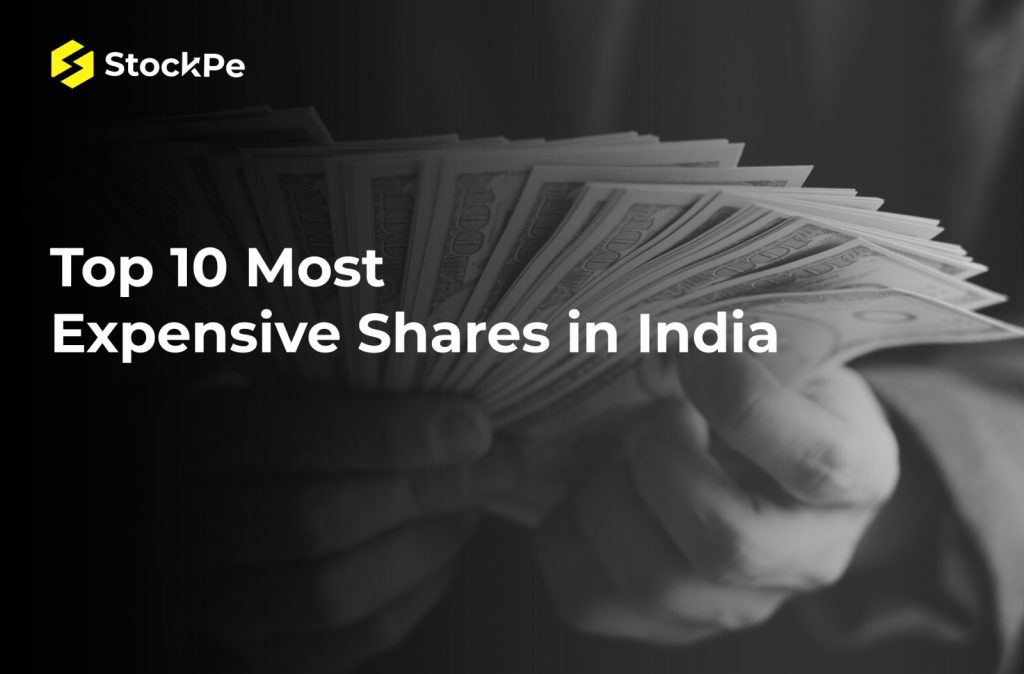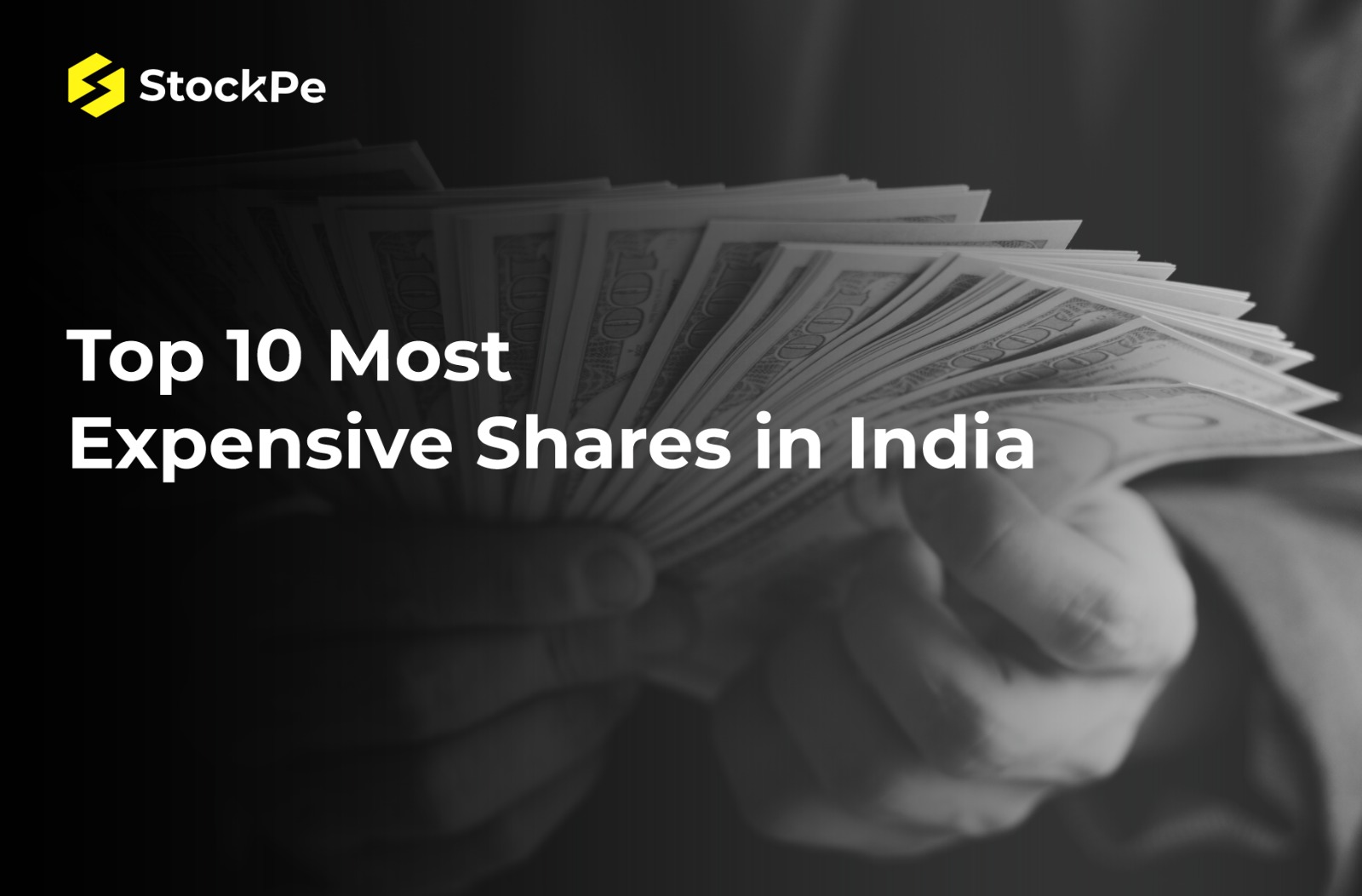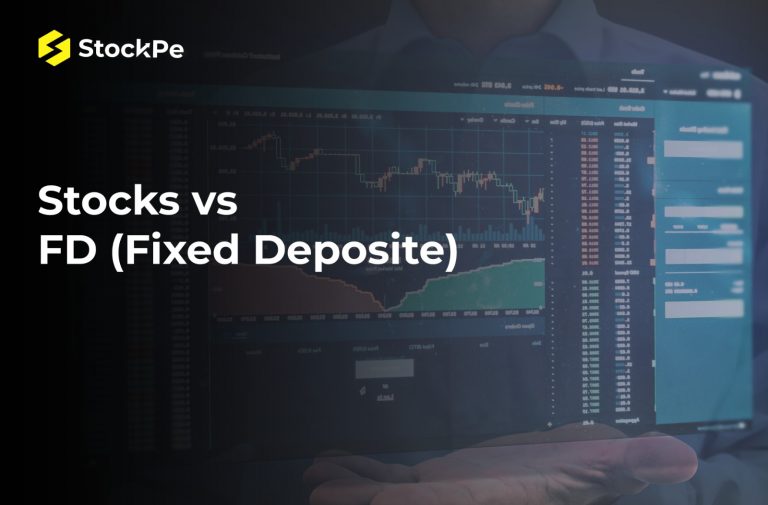The ownership units of a firm that are openly traded on the Indian stock market are called shares, commonly referred to as stocks or equities. An investor who purchases shares in a corporation is given the right to a share of the firm’s assets and income as well as ownership in the company. The value of shares are based on the market’s demand and supply for a company’s stock, which can be affected by a variety of variables including the company’s financial performance, growth prospects, market trends, and world events.

A common approach for people to contribute to the expansion of the Indian economy and potentially get larger returns than other investment possibilities is by investing in Indian shares.
There are numerous publicly traded corporations in a range of industries on the Indian stock market. These businesses have equities that are valued significantly higher than those of other businesses, making them some of the most expensive shares in India. A number of variables, including the company’s financial performance, growth prospects, market demand, and investor attitude, affect the pricing of these shares. These shares can serve as both a status symbol and a lucrative investment for people seeking large profits. It’s crucial to remember that these shares’ values are prone to market volatility and could not always accurately reflect their worth.
While purchasing shares may present chances to generate capital growth and income from dividends, it also carries certain risks, including those related to monetary volatility that are share price oscillations, and specific to the business risks. Whenever buying any investments, it is important that investors do extensive research, diversify their holdings, and speak with a financial professional.
Purchasing pricey shares in India can be beneficial and risky at the same time. Although these shares are frequently linked to reputable businesses with a proven track record of stability and financial performance, they are also susceptible to market fluctuations and shifts in investor sentiment. To make wise investment choices, investors should thoroughly assess the fundamentals of the businesses whose shares they are interested in, such as their revenue growth, earnings, debt-to-equity ratios, and market share. It’s also crucial to keep in mind that a variety of outside factors, including modifications to governmental regulations, changes to fiscal conditions, world events, and industry trends, might affect the prices of these shares.
The largest stock exchange in India, with its headquarters in Mumbai, is called the National Stock Exchange (NSE). It was founded in 1992 as the nation’s first demutualized electronic exchange and has since grown to be one of the biggest markets in terms of the quantity of trade. The NSE offers a trading platform for a variety regarding financial products, including, among others, equities, derivatives, currencies, bonds, and exchange-traded funds (ETFs). The exchange is renowned for its cutting-edge technological infrastructure, which makes trading and settlement processes quick, effective, and accessible. In order to guarantee honest and orderly trading practises, it also has a robust regulatory framework and an extensive market surveillance system.
Most Expensive Shares Prices in India:
There are some pricey shares in the Indian stock market that are regarded as the most expensive shares in the nation. The value of these shares is determined by a number of variables, including as the company’s financial performance, its potential for future growth, market demand, and investor opinion.
In India, some of the most costly shareholding enterprises have a long history of financial stability and expansion. Investing in these companies’ stock has the potential to yield high returns on investment and can be considered as a status symbol.
Nevertheless, there are risks associated with purchasing expensive shares in India. These shares may be susceptible to market swings, movements in investor sentiment, and changes in the state of the world economy. Investors must conduct due diligence, carefully assess the fundamentals of the businesses whose shares they are interested in, and keep a watch on market developments and other factors that can affect the value of their holdings.
All things considered, buying shares in India’s priciest companies requires a thorough understanding of the market and a long-term investment time horizon. High profits may be possible, but investors must be ready to withstand market volatility and appropriately manage risk.
According to their market value per share, among the top 10 most expensive shares in the nation of India as of my current knowledge cutoff date of April 2023 are:
- MRF Ltd. (share price: Rs 76,722.55): Among the top Indian multinational corporations, MRF Limited specialises in producing tyres for a range of vehicles, including cars, motorcycles, lorries, buses, and even aeroplanes. The business started off as a modest toy balloon plant in Chennai in 1946 before growing to produce rubber goods.
- Honeywell Automation India Ltd. (share price: Rs. 43,605.05): A well-known Indian business, Honeywell Automation India Ltd., specialises in offering automation and control solutions for a range of industries, including manufacturing, oil and gas, and electricity. The business is a unit of Honeywell International Inc., a Fortune 100 firm with headquarters in the US.
- Page Industries Ltd. (share price: Rs 33,102.95): The Indian firm Page Industries Ltd. is best known for its main brand, Jockey, which is the country’s top producer and marketer of innerwear and leisurewear goods. The business was founded in 1994 and has since developed into one of the most well-known and reputable names in the nation.
- Shree Cement Ltd. (shares are worth Rs 30,000.00): Founded in Rajasthan in 1979, Shree Cement Ltd. is one of India’s top cement manufacturers. With a manufacturing capacity of more than 40 million tonnes annually, the business has subsequently expanded to rank among the biggest cement producers in the nation.
- Nestle India Ltd. (share price: Rs 19,347.55): The well-known Swiss food and beverage corporation Nestle S.A. has a significant Indian subsidiary in Nestle India Ltd. The business was founded in India in 1959, and since then, it has grown to be among the most well-known and reputable names there.
- Bosch Ltd. (Rs 19,294.35 per share): The Bosch Group, a multinational technology and engineering business with headquarters in Germany, has a significant Indian subsidiary called Bosch Ltd. The business was founded in India in 1951, and since then, it has grown to be among the most well-known and reputable names there.
- 3M India Ltd. (Rs 17,722.05 per share): An American-based multinational science and technology corporation called 3M Company has a subsidiary in India called 3M India Ltd. The business was founded in India in 1987 and has since emerged as a top supplier of cutting-edge solutions for numerous markets, including healthcare, electronics, and automotive.
- Procter & Gamble Hygiene and Health Care Ltd. (Rs 14,603.45 per share): Founded in the United States, Procter & Gamble Co. is a major global consumer goods corporation with a significant Indian subsidiary called Procter & Gamble Hygiene and Health Care Ltd. Since its 1964 founding, the business has grown to be well-known throughout India.
- Tata Consultancy Services Ltd. (shares are worth Rs. 3,852.25 each): A well-known Indian multinational provider of IT services and consulting is Tata Consultancy Services Ltd. (TCS). The business was founded in 1968, and it has its headquarters in Mumbai, India.
- Kotak Mahindra Bank Ltd. (Rs. 2,221.00 per share): Leading Indian private sector bank Kotak Mahindra Bank Ltd. was founded in 1985. The banking company is a division of the Kotak Mahindra Group, a diversified provider of financial services, and has its headquarters in Mumbai, India.
In a nutshell the Indian stock market offers a number of expensive shares that are regarded as the most costly in the nation. Based on elements such the company’s financial performance, growth potential, market demand, and investor attitude, these shares of the company are evaluated.
The potential for big profits from investing in pricey Indian stocks incorporates hazards, however, including market volatility, shifts in investor mood, as well as shifts in general economic conditions. Shareholders should maintain a mix of stocks to reduce volatility and cautiously assess the fundamentals of the businesses whose shares they are interested in purchasing.
Regardless of these dangers, owning stock in a number of India’s priciest companies can be a mark of distinction and present chances for capital growth and revenue from dividends. An essential venue for businesses to acquire finance and for investors to get involved in the expansion of the Indian economy is the stock exchange in India.
In general, buying pricey shares in the country demands an extended investing perspective, in-depth market knowledge, and meticulous risk management. For investors who are prepared to do their research and keep up with market trends and developments, it may be a profitable and satisfying investment option with a proper approach.
India has grown to be a significant player in the global economy in recent years, and investors looking for high-growth opportunities are becoming more and more drawn to its stock market. Shares at well-known corporations like Reliance Industries, Tata Consultancy Services, and HDFC Bank are among the costly shares available on the Indian stock market, which is thought to be the most expensive in the entire nation.
Purchasing costly Indian shares can be rewarding and difficult. These stocks frequently belong to organisations with a solid history of financial stability and expansion, and they have the potential to provide substantial gains over the long run.
In spite these dangers, owning stock in some of India’s priciest companies can be a mark of distinction and present chances for capital growth and dividend income. Investors wishing to diversify their portfolios and take advantage of the Indian economy’s potential for growth frequently seek out these assets.
The National Stock Exchange and the Bombay Stock Exchange, which control the Indian stock market, have seen tremendous expansion in recent years because to rising involvement from domestic and foreign investors. With a strong regulatory framework and a strong market monitoring system in place to promote fair and orderly trading practises, the market is distinguished by great liquidation, and clarity.
In general, buying pricey Indian shares demands a long-term investment horizon, in-depth market knowledge, and rigorous risk management. Excellent returns may be possible, but investors must be ready to handle market volatility and efficiently manage risk. For individuals who are ready to do their homework and keep up with the latest markets and developments, investing in India’s most expensive shares can be a lucrative and gratifying prospect with the proper attitude.





